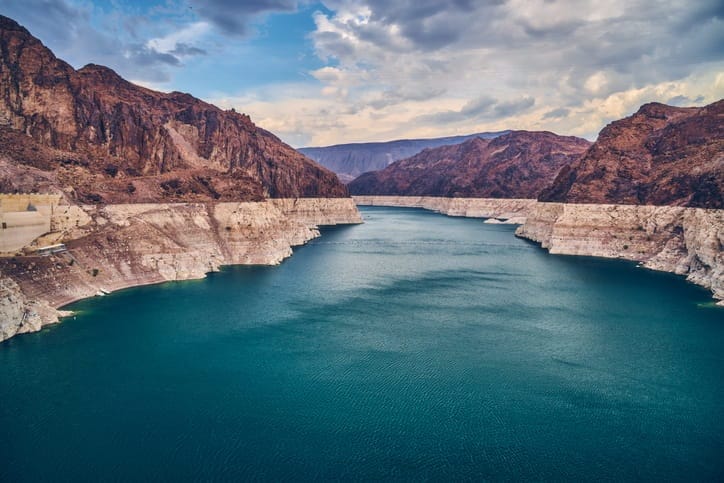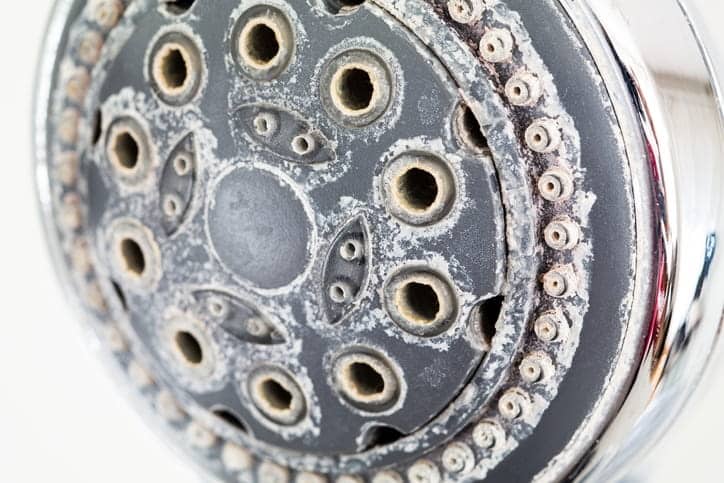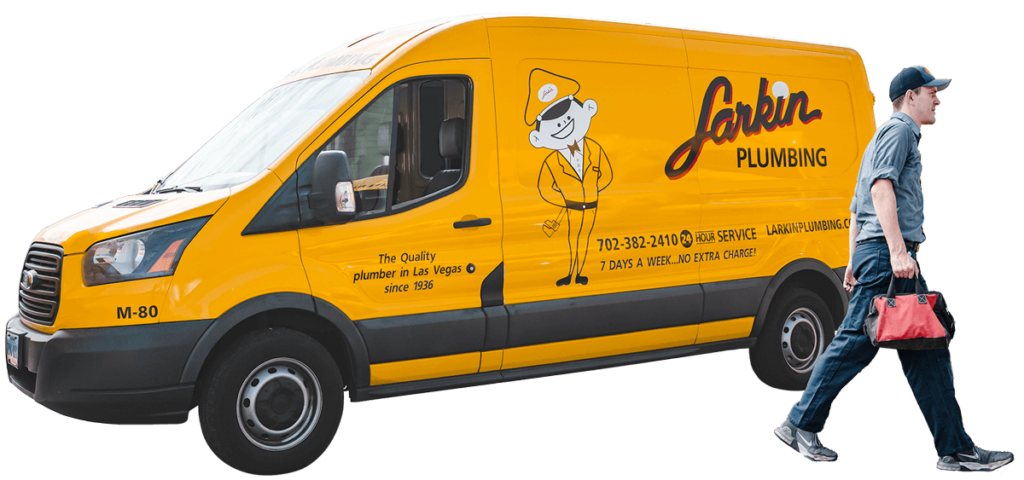
Las Vegas is known for endless fun, vibrant nightlife, and so much more. If you live here, you also know that, unfortunately, the Entertainment Capital of the World also has a major water problem —a hard water problem, that is.
But what exactly is hard water, how does it impact your home and health, and what can you do to fight back against the issues hard water may cause?
At Larkin Plumbing, our team specializes in improving the water quality of your home or residence. Get in touch today to see how we can help you.
What is water hardness?
If you’ve ever felt a film on your hands while washing with soap and water, struggled with really dry skin after a shower, or noticed a scaly buildup around your water fixtures, you might have to blame your hard water for it.
Water can be “hard” or “soft” depending on the types of minerals in it. Hard water is described as water that has calcium and magnesium deposits mixed into it. Meanwhile, soft water is free from these minerals.
With repeated use, you’ll be able to tell the difference between hard and soft water. Soft water feels much cleaner and even silky or smooth, while hard water leaves you feeling like all the moisture has been stripped off of your body.
If you clean using hard water, you’ll also notice some annoyances. Cleaning glass surfaces and dishes using hard water typically leaves behind a cloudy residue. This is due to the calcium and magnesium deposits left behind after the water droplet evaporates. You’ll also notice there are a lot less suds being produced when you use soap alongside hard water.
Related: Commercial Drain Cleaning Las Vegas
Why does Las Vegas have such hard water?
A number of cities across the nation have hard water problems, and unfortunately, Las Vegas is one of those states. Las Vegas ranks as the nation’s second-leading city with the hardest water, according to the latest report. Las Vegas falls just underneath Indianapolis, the nation’s leading city with the hardest water.
According to the Las Vegas Valley Water District, Las Vegas has a hardness rating of 278 parts per million or 16 grains per gallon. Unfortunately, this rating falls under the classification of “extremely hard.”
To understand why the water in Las Vegas is hard, it’s important to understand where the water in Las Vegas comes from. When snow in the Rocky Mountains melts, it flows into the Colorado River. From there, the water moves into Lake Mead.
State officials report that over 90% of the water supply in Las Vegas comes from Lake Mead. During the water’s journey from the Rocky Mountains to Lake Mead, the water supply picks up dissolved minerals from the mineral-dense canyons. This water eventually moves into the Las Vegas water supply before it flows into your home’s pipe system.
How do you know you have hard water?
It’s relatively easy to determine whether or not you have hard water flowing through your home’s pipes. You can easily do this through simple observations after using the water. Common issues you’ll find if you have a hard water problem include:
- A chalky, white buildup of scum on your faucets and water fixtures
- Shampoo and soap do not properly foam up or rinse off
- Dry, irritated skin that worsens if you struggle with psoriasis or eczema
- Spotted and dingy dishes or glassware
- Clothing that looks dull, worn out or develops spotting after washing
- Issues with appliances that use the water from your home’s pipe system
- A bitter or slightly salty taste to the water
Are there any health risks associated with hard water?
Luckily, there are no serious or adverse health conditions associated with using hard water, even if you drink it. For the most part, the nuances you’ll experience with hard water are typically annoyances with daily activities like washing and cleaning.
If you are someone who struggles with skin conditions like psoriasis or eczema, you may find that showering and washing with hard water makes your skin feel drier and itchier than normal. The best way to remedy this, however, is by using a quality skin moisturizer.
Can hard water cause plumbing problems?
While hard water won’t cause any major health issues for you and your loved ones, it can, unfortunately, wreak havoc on your plumbing system over time. As hard water flows through your plumbing system, it can create mineral buildup inside your pipes. This buildup can lead to the formation of clogs and can decrease the overall water pressure in your home. This limescale buildup typically takes years before you may begin experiencing issues.
Related: Water Filtration Systems in Las Vegas
How to fix hard water issues
If you’re struggling with hard water issues in your home or business, you have several options you can tap into.
Vinegar can be a really effective way to clean hard water buildup around your faucets and fixtures. It can also be a great way to help clear up some of the limescale buildups in appliances like your dishwasher, washing machine, coffee maker, and other appliances.
If you struggle with skin issues due to hard water when you shower or wash your hands, installing a shower head filter or faucet filter can help eliminate the calcium and magnesium buildup.
You can also tackle the hard water problems from the source by investing in a quality water softener system or using a whole-house water filtration system. With both types of filtration systems, you can improve the quality of water that flows through your home piping system to eliminate both the minor and major issues hard water causes.
If you’re experiencing plumbing issues or concerns related to hard water, call the Las Vegas plumbing experts at Larkin Plumbing! Let our team help you explore available options for your hard water issues and discover the clarity and comfort of having treated water in your home. Give us a call today to learn more about improving the water quality in your home.
Related: The Impact of Hard Water on Plumbing
Sources:
A Look at Hard Water Across the US. (2019).
Water Quality FAQs. (2023).
Where Your Water Comes From. (2023).


